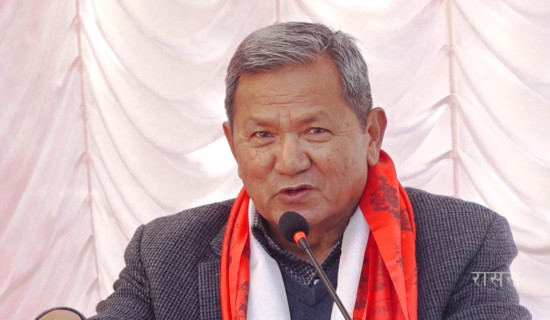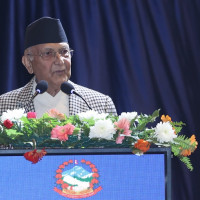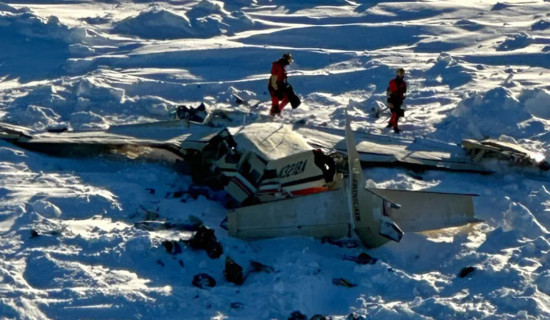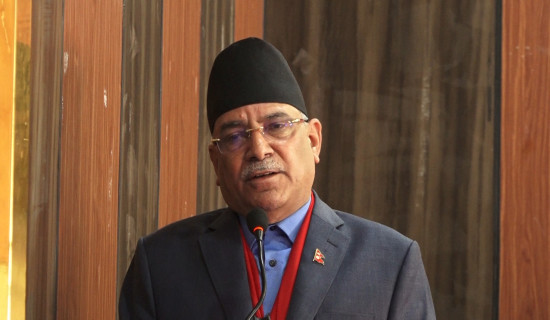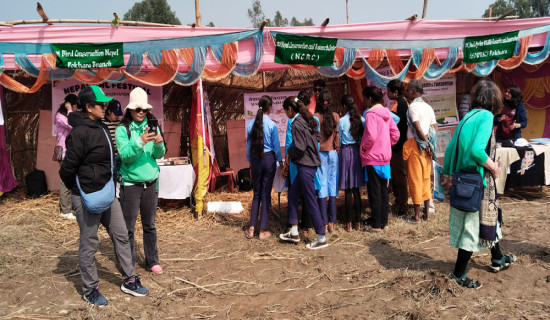- Sunday, 9 February 2025
‘Nepal can contribute to clean, green, nature-based climate solutions’
By A Staff Reporter, Kathmandu, Nov. 17: Melting snow and ice from the mountains contribute to sea level rise and these two regions are interconnected, but mountains have yet to receive the same level of attention.
Delivering the national statement at the 27th Conference of Parties to Climate Change (COP 27) in Sharm el-Sheikh, Egypt, on Tuesday, Dr. Pem Narayan Kandel, Secretary at the Ministry of Forest and Environment and head of the delegation of Nepal, said that mountains are the “water towers” providing ecosystem services, and climate regulation extends far beyond their geographical boundaries.
However, mountains are fragile ecosystems and the climate crisis is making them even more fragile than before. Due to extreme climatic events, Nepal is facing climate-induced disasters in different forms which are causing huge losses to the economy, ecosystem, and humanity, he said.
At COP 21, the Heads of the States set a target to limit global warming to 1.5 degrees Celsius and keep the temperature below 2 degrees Celsius in this century. However, the recent emission gap report reveals that there has been inadequate progress in reducing the temperature level and emissions.
Therefore, we anticipate that COP27 would focus to review our commitments and renew solidarity to deliver on the landmark Paris Agreement, he said.
Nepal, being a landlocked mountainous country with fragile topography, is facing the negative impact of climate change despite its negligible contribution to greenhouse gas emissions.
Nepal has raised high climate ambition in its updated Nationally Determined Contributions (NDCs) to reach net-zero emissions by 2045. It is the leader in the effective implementation of Locally Led Adaptation through the participation of local stakeholders. We have already achieved reverse deforestation and maintain 45 per cent forest cover.
“All climate change and sustainable development-related policies are in place. Our development model is green, resilient and inclusive. With abundant water, forest and biodiversity resources, Nepal can contribute to sharing clean, green, and nature-based climate solutions in the region,” Dr. Kandel said.
However, to translate all those ambitions and plans into action, we need huge resources, technology and capacity. I urge developed countries to ensure adequate technical, and financial support to economically and environmentally vulnerable countries like Nepal.
“We do not have gaps in climate target and commitment. But implementation is lacking. As a result, the emission gap increased and the window of lim
iting temperature is closing. We urge developed and economically emerging countries to set more ambitious targets by updating the NDCs,” he said.
Dr. Kandel said, “I would like to request the global community to include a mountain agenda in the climate COP negotiation processes to save majestic mountains for the planet and humanity. Financial Facility on loss and damage is our bottom line.”
Reflecting on the urgent need for action to tackle the climate crisis, we have a unique opportunity to make COP 27 another milestone to hand over a better planet for the next generation. Nepal is firmly committed to being a part of this endeavor and looks forward to an enhanced level of cooperation.



